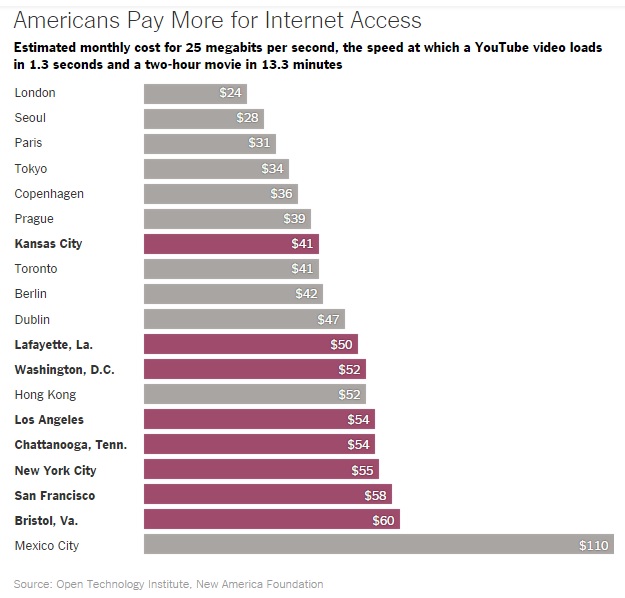Obama Asks FCC to Reclassify Internet as Utility to Implement Net Neutrality

President Obama has been known to support the idea of net neutrality. However, he made it clear that he supports Title II reclassification of the Internet with a statement and video (see below) released on Monday, November 10.
Title II reclassification under the Telecommunications Act means that the Internet would be treated as a utility in the eyes of the government. Utilities provide the goods (water, electricity, etc.) but do not have a say in how consumers use the goods. An Internet service provider (ISP) would not be able to limit your bandwidth when using certain applications and services or block specific, legal websites under net neutrality.
http://www.youtube.com/watch?v=uKcjQPVwfDk
One does not simply reclassify the Internet as a utility and call it a day. The president does not get into the specifics, but says the FCC needs to consider reclassification, "while at the same time forbearing from rate regulation and other provisions less relevant to broadband services." Should the FCC embrace net neutrality, determining which provisions need not apply to the Internet will be another tall task.
The president recognizes that growth of future ISPs and competition as important by saying, "If the FCC appropriately forbears from the Title II regulations that are not needed to implement the principles above, it will help ensure new rules are consistent with incentives for further investment in the infrastructure of the Internet."
The president outlined four results that would come out of net neutrality and a reclassification of the Internet by the FCC:
- No blocking. If a consumer requests access to a website or service, and the content is legal, your ISP should not be permitted to block it. That way, every player — not just those commercially affiliated with an ISP — gets a fair shot at your business.
- No throttling. Nor should ISPs be able to intentionally slow down some content or speed up others — through a process often called “throttling” — based on the type of service or your ISP’s preferences.
- Increased transparency. The connection between consumers and ISPs — the so-called “last mile” — is not the only place some sites might get special treatment. So, I am also asking the FCC to make full use of the transparency authorities the court recently upheld, and if necessary to apply net neutrality rules to points of interconnection between the ISP and the rest of the Internet.
- No paid prioritization. Simply put: No service should be stuck in a “slow lane” because it does not pay a fee. That kind of gatekeeping would undermine the level playing field essential to the Internet’s growth. So, as I have before, I am asking for an explicit ban on paid prioritization and any other restriction that has a similar effect.
Net neutrality is more of a preventive measure than it is a revolution of how the Internet is used. There are currently few instances of blocking, throttling, and paid prioritization, so not much would change for today's average Internet user.
While the president's statement is music to the ears of open-Internet supporters, there is not much the president, by himself, can do -- only advocate for certain policy changes. The FCC operates as an independent organization and will have to decide on how to approach net neutrality.
The United States currently has some of the least affordable Internet services while providing slower speeds. Certain areas of the U.S. have limited ISP options. As Columbia Law School Professor Tim Wu says, "The average market has one or two serious Internet providers, and they set their prices at monopoly or duopoly pricing.” Over 100 municipalities have taken Internet service into their own hands and provide it as a public utility.




